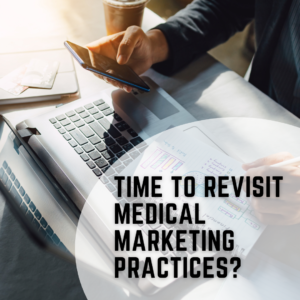 As a healthcare ethics speaker, healthcare ethics consultant and book author, I am immediately skeptical when I hear stories of healthcare or pharmaceutical organizations that elected to hide behind marketing practices. The last such major scandal involving “marketing expenses,” involved the opioid scam where physicians were given bribes (in the form of educational seminars) to write prescriptions. We might also remember another pharmaceutical company that bribed foreign distributors and their sales reps to push drugs in several Asian markets.
As a healthcare ethics speaker, healthcare ethics consultant and book author, I am immediately skeptical when I hear stories of healthcare or pharmaceutical organizations that elected to hide behind marketing practices. The last such major scandal involving “marketing expenses,” involved the opioid scam where physicians were given bribes (in the form of educational seminars) to write prescriptions. We might also remember another pharmaceutical company that bribed foreign distributors and their sales reps to push drugs in several Asian markets.
Durable Medical Equipment Companies
One of the many areas of the vast healthcare complex is the area of durable medical products. Products include orthotic braces and continuous glucose monitors. Under ethical and normal circumstances, these products are essential to preserve health and in the case of orthopedic injuries, mobility itself.
Her name is Alexandra Stchastlivtseva and for the rest of this post, we will refer to her as “AS.” If she is convicted of the charges against her, she could face five years in prison on the count of conspiracy plus “ten years in prison on each count of offering and paying health care kickbacks, and ten years in prison on the count of money laundering conspiracy.” In short, she could serve twenty years of more for her unethical behavior.
However, “AS” is not so important so much as how she was able to manipulate the Medicare system through a complex plan of kickbacks and bribes. The healthcare system has so far suffered more than $19 billion in fraud, and “AS” is one of 4,200 fraudsters.
The machine
The kickback conspiracy this woman created raked in more than $17 million. In the scam she created she worked with (conspired with) several telemedicine organizations. She paid the companies bribes in exchange for completed, provider approvals that were submitted to Medicare. The payoffs were concealed as payments for marketing.
The patients were phony, most of the medical durables from her company were never shipped nor obviously, were they used. As a healthcare ethics speaker, healthcare ethics consultant and book author, I can assure you that because oversight was so sparse, a scam of this nature – and many more yet to be uncovered, “AS” could be a master puppeteer in perpetuating a fraud of this nature.
However, none of this could have happened without the consent of the partners in this scheme, and that is where the major ethical problems occur in this fraud. In order to make this work, there had to be telemarketers, healthcare providers who granted their signatures on medical forms and employees within the medical durable products company who were all willing to commit fraud. No one here was naïve; everyone knew exactly what was occurring, including some of the fake patients.
As with any fraud, there must be a sense of rationalization. The easiest rationalization of all is that “no one cares,” i.e., the government has lots of money and no one will miss it. As the fraud, in this case, topped out at $17 million, it is a safe assumption the money would get eventually missed.
Medicare fraud is hardly victimless. We all end up paying sooner or later, be it taxes or diminished service or changes in legislation making it more difficult for people to get access to what they need.
Revisit
“Marketing expenses” are a bucket of ill-defined terms that need better definition and, in fact, a higher degree of ethical and legal scrutiny. Whether the illegal marketing came about as bribes, lunches, kickbacks or sales incentives in foreign markets, they are wrong under the law.
It would seem logical that ethical training should be reinforced in and around any sales efforts with or without the involvement or presence of healthcare providers.
The $19 billion in Medicaid fraud came out of our pockets. If the system remains corrupt, the fraud will surely rise to multiples more.
LEAVE YOUR COMMENTS!



What I would like to know is how they got my information to file a claim for a condition I don’t have from I physician I never heard of!